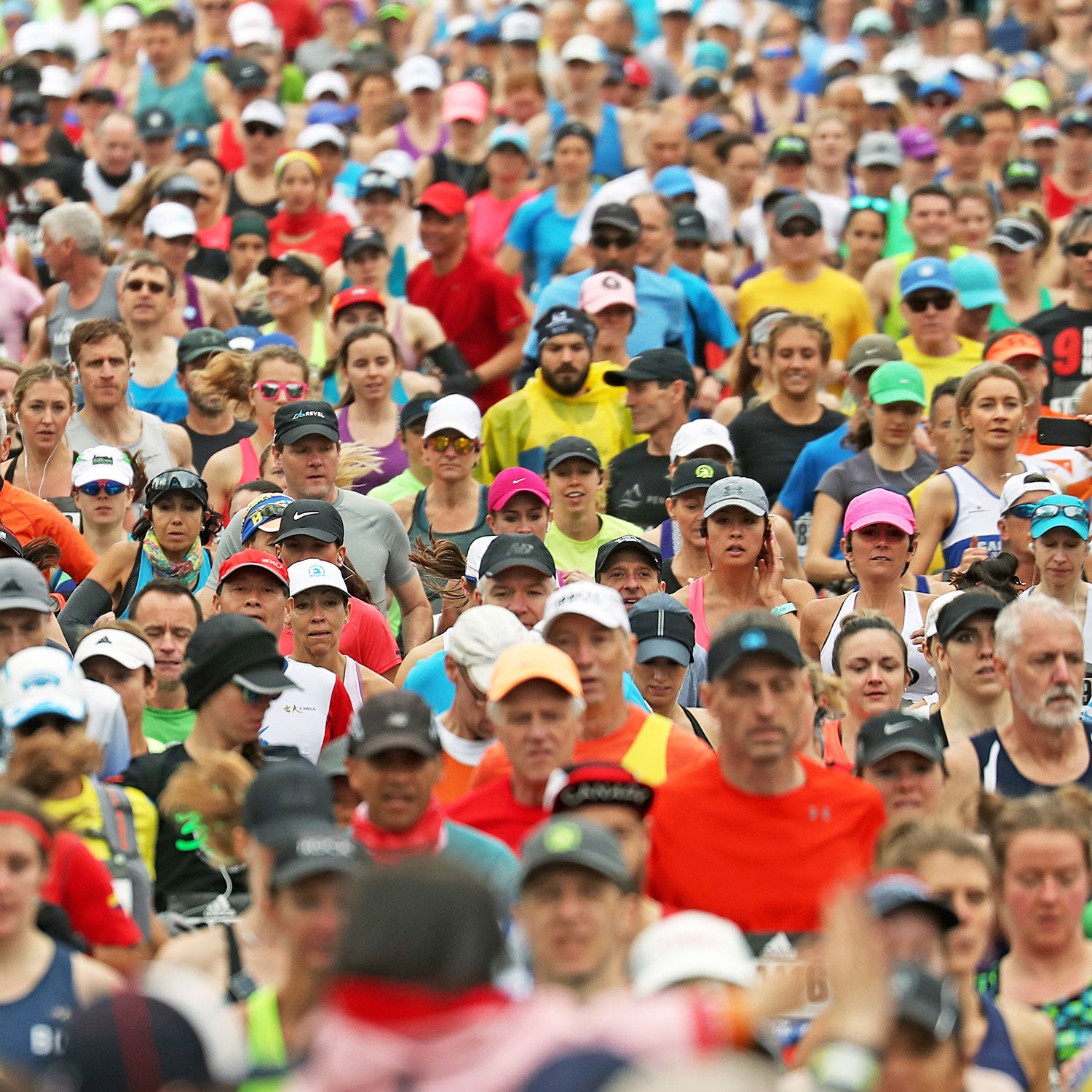On February 18, I wrote an article��in response to the news that the 2020 Tokyo Marathon had been canceled��for the general public over fears of the spread of the coronavirus. At the time, Japan, a country of over 120 million people, officially had around 500 active cases—a number that has remained relatively stable. (Three weeks later, on March 11, the World Health Organization listed the number of confirmed infections in Japan at 568.) Meanwhile, in China’s Hubei province, where the current outbreak began and where cases numbered in the tens of thousands, a government-mandated mass-quarantine��strategy had given rise to zany stories of��cooped-up runners .��
It all sounded exotic, mildly absurd, and very far away.
Things have changed. In the manner of the horror movie motif where some vague menace is perceptible in the distance, and then suddenly , COVID-19 has proliferated in the United States in recent days; as of Friday morning, the —up from 70 at the start of this month. On Wednesday, the World Health Organization declared it a pandemic, as leaders around the world responded with varying degrees of alarm. Angela Merkel, the chancellor of Germany who is not typically known for hyperbole, coolly noted that it was conceivable that ��could become infected. After initially downplaying the severity of the threat, President Trump has now barred foreign nationals coming from 26 European countries from entering the United States. Meanwhile, the availability of COVID-19 tests in this country—to say nothing of ICU-unit beds—remains dramatically inadequate.��To quote the activist and , the monster is at our door.��
Needless to say, running events around the world have also been impacted, with new reports of race cancellations coming on a weekly (if not daily) basis. After major European marathons like Rome and Paris were either suspended or called off entirely, stateside races have followed suit. From high-profile track meets like the New Balance Indoor Nationals, to major road races like the NYC Half, to fringe DIY-type experiments like the Speed Project, the outbreak’s impact has been felt across the sport. On Friday morning, ��that this year’s Boston Marathon, which was originally scheduled for April 20, would be postponed to September 14. This marks��the first time in the race’s 124-year history that it will not take place in April.��
Over the past weeks and months, I have been training for the Vienna Marathon, for which I had intended to use the NYC Half as a tune-up. Both races have now been canceled.��Like thousands of runners around the world, I have had to reconcile my genuine disappointment with the very obvious fact that being temporarily prevented from indulging in my bougie hobby��is a trivial sacrifice to make. Just how trivial will only be borne out in the coming days and weeks.��
Fortunately, racing and running are not the same thing. As a number of people have already observed in the ominously mono-themed Twittersphere, running is the optimal sport for a time when everyone is encouraged to avoid crowded, enclosed spaces whenever possible. Personally, I don’t need a global contagion to feel smug about not being a gym guy, but it’s mildly reassuring to know that I’ve been practicing ��“social distancing,” unprompted, every day for the last 20��years. (Of course, I don’t run to get away from people so much as to preserve my sanity, which, things being as they are, is a rather useful benefit as well.)��
Since I don’t know when I might��race again, I have been deliberating on whether there is any point in doing anything “hard” on the running front. To run at any pace means voluntarily subjecting yourself to some degree of discomfort, but pushing yourself in a workout usually��requires overriding the urge to do pretty much anything else. With everything in limbo, the question becomes: why “train” when there’s nothing to train for?��
Yesterday, however, after spending the evening reading about an incipient global financial crisis, I grew restless and headed up to my local park to do a five-mile tempo in the rain. It was eerily mild for mid-March, and there weren’t many people out. About halfway through the workout, I was beset by a desire to stop, but managed to hang on. Afterwards, jogging home, I felt the familiar��rush—the satisfaction that comes from reaffirming your resilience to��no one but yourself, your ability to endure.


